Author Photo And Bio
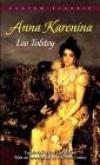 1. Anna Karenina by Leo Tolstoy (1877). Anna’s adulterous love affair with Count Vronsky —which follows an inevitable, devastating road from their dizzyingly erotic first encounter at a ball to Anna’s exile from society and her famous, fearful end —is a masterwork of tragic love. What makes the novel so deeply satisfying, though, is how Tolstoy balances the story of Anna’s passion with a second semiautobiographical story of Levin’s spirituality and domesticity. Levin commits his life to simple human values: his marriage to Kitty, his faith in God, and his farming. Tolstoy enchants us with Anna’s sin, then proceeds to educate us with Levin’s virtue.
1. Anna Karenina by Leo Tolstoy (1877). Anna’s adulterous love affair with Count Vronsky —which follows an inevitable, devastating road from their dizzyingly erotic first encounter at a ball to Anna’s exile from society and her famous, fearful end —is a masterwork of tragic love. What makes the novel so deeply satisfying, though, is how Tolstoy balances the story of Anna’s passion with a second semiautobiographical story of Levin’s spirituality and domesticity. Levin commits his life to simple human values: his marriage to Kitty, his faith in God, and his farming. Tolstoy enchants us with Anna’s sin, then proceeds to educate us with Levin’s virtue.
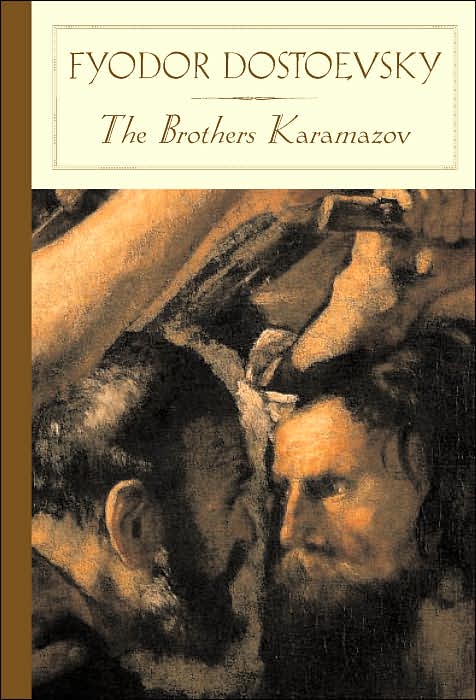 2. The Brothers Karamazov by Fyodor Dostoevsky (1880). In perhaps the consummate Russian novel, Dostoevsky dramatizes the spiritual conundrums of nineteenth-century Russia through the story of three brothers and their father’s murder. Hedonistic Dmitri, tortured intellectual Ivan, and saintly Alyosha embody distinct philosophical positions, while remaining full-fledged human beings. Issues such as free will, secularism, and Russia’s unique destiny are argued not through authorial polemic, but through the confessions, diatribes, and nightmares of the characters themselves. An unsparing portrayal of human vice and weakness, the novel ultimately imparts a vision of redemption. Dostoevsky’s passion, doubt, and imaginative power compel even the secular West he scorned.
2. The Brothers Karamazov by Fyodor Dostoevsky (1880). In perhaps the consummate Russian novel, Dostoevsky dramatizes the spiritual conundrums of nineteenth-century Russia through the story of three brothers and their father’s murder. Hedonistic Dmitri, tortured intellectual Ivan, and saintly Alyosha embody distinct philosophical positions, while remaining full-fledged human beings. Issues such as free will, secularism, and Russia’s unique destiny are argued not through authorial polemic, but through the confessions, diatribes, and nightmares of the characters themselves. An unsparing portrayal of human vice and weakness, the novel ultimately imparts a vision of redemption. Dostoevsky’s passion, doubt, and imaginative power compel even the secular West he scorned.
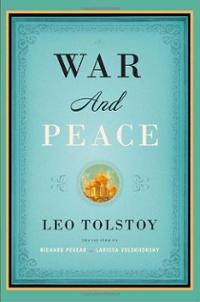 3. War and Peace by Leo Tolstoy (1869). Mark Twain supposedly said of this masterpiece, “Tolstoy carelessly neglects to include a boat race.” Everything else is included in this epic novel that revolves around Napoleon’s invasion of Russia in 1812. Tolstoy is as adept at drawing panoramic battle scenes as he is at describing individual feeling in hundreds of characters from all strata of society, but it is his depiction of Prince Andrey, Natasha, and Pierre —who struggle with love and with finding the right way to live —that makes this book beloved.
3. War and Peace by Leo Tolstoy (1869). Mark Twain supposedly said of this masterpiece, “Tolstoy carelessly neglects to include a boat race.” Everything else is included in this epic novel that revolves around Napoleon’s invasion of Russia in 1812. Tolstoy is as adept at drawing panoramic battle scenes as he is at describing individual feeling in hundreds of characters from all strata of society, but it is his depiction of Prince Andrey, Natasha, and Pierre —who struggle with love and with finding the right way to live —that makes this book beloved.
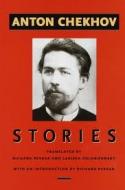 4. Stories of Anton Chekhov (1860–1904). The son of a freed Russian serf, Anton Chekhov became a doctor who, between the patients he often treated without charge, invented the modern short story. The form had been overdecorated with trick endings and swags of atmosphere. Chekhov freed it to reflect the earnest urgencies of ordinary lives in crises through prose that blended a deeply compassionate imagination with precise description. “He remains a great teacher-healer-sage,” Allan Gurganus observed of Chekhov’s stories, which “continue to haunt, inspire, and baffle.”
4. Stories of Anton Chekhov (1860–1904). The son of a freed Russian serf, Anton Chekhov became a doctor who, between the patients he often treated without charge, invented the modern short story. The form had been overdecorated with trick endings and swags of atmosphere. Chekhov freed it to reflect the earnest urgencies of ordinary lives in crises through prose that blended a deeply compassionate imagination with precise description. “He remains a great teacher-healer-sage,” Allan Gurganus observed of Chekhov’s stories, which “continue to haunt, inspire, and baffle.”
 5. In Search of Lost Time by Marcel Proust (1913–27). It’s about time. No, really. This seven-volume, three-thousand-page work is only superficially a mordant critique of French (mostly high) society in the belle époque. Both as author and as “Marcel,” the first-person narrator whose childhood memories are evoked by a crumbling madeleine cookie, Proust asks some of the same questions Einstein did about our notions of time and memory. As we follow the affairs, the badinage, and the betrayals of dozens of characters over the years, time is the highway and memory the driver.
5. In Search of Lost Time by Marcel Proust (1913–27). It’s about time. No, really. This seven-volume, three-thousand-page work is only superficially a mordant critique of French (mostly high) society in the belle époque. Both as author and as “Marcel,” the first-person narrator whose childhood memories are evoked by a crumbling madeleine cookie, Proust asks some of the same questions Einstein did about our notions of time and memory. As we follow the affairs, the badinage, and the betrayals of dozens of characters over the years, time is the highway and memory the driver.
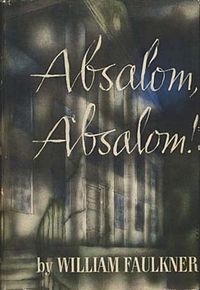 6. Absalom, Absalom! by William Faulkner (1936). Weaving mythic tales of biblical urgency with the experimental techniques of high modernism, Faulkner bridged the past and future. This is the story of Thomas Sutpen, a rough-hewn striver who came to Mississippi in 1833 with a gang of wild slaves from Haiti to build a dynasty. Almost in reach, his dream is undone by plagues of biblical (and Faulknerian) proportions: racism, incest, war, fratricide, pride, and jealousy. Through the use of multiple narrators, Faulkner turns this gripping Yoknapatawpha saga into a profound and dazzling meditation on truth, memory, history, and literature itself.
6. Absalom, Absalom! by William Faulkner (1936). Weaving mythic tales of biblical urgency with the experimental techniques of high modernism, Faulkner bridged the past and future. This is the story of Thomas Sutpen, a rough-hewn striver who came to Mississippi in 1833 with a gang of wild slaves from Haiti to build a dynasty. Almost in reach, his dream is undone by plagues of biblical (and Faulknerian) proportions: racism, incest, war, fratricide, pride, and jealousy. Through the use of multiple narrators, Faulkner turns this gripping Yoknapatawpha saga into a profound and dazzling meditation on truth, memory, history, and literature itself.
 7. Silence by Shusaku Endo (1969). Set during the early seventeenth century, when Japanese Christians and the European priests serving them were persecuted and forced to renounce their faith, this novel focuses on a Portuguese priest whose travails force him to ponder “the silence of God . . . the feeling that while men raise their voices in anguish God remains with folded arms, silent.”
7. Silence by Shusaku Endo (1969). Set during the early seventeenth century, when Japanese Christians and the European priests serving them were persecuted and forced to renounce their faith, this novel focuses on a Portuguese priest whose travails force him to ponder “the silence of God . . . the feeling that while men raise their voices in anguish God remains with folded arms, silent.”
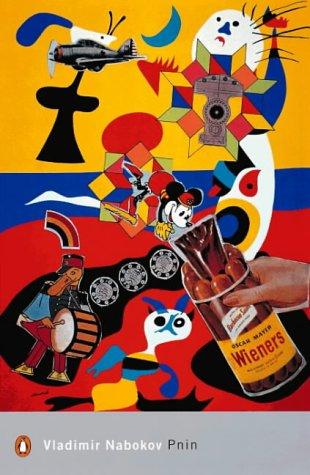 8. Pnin by Vladimir Nabokov (1953). This episodic novel details the often comic, unexceptional life of Timofey Pnin, a Russian teaching at an American college who has never mastered English or learned how to drive a car (like Nabokov himself). It is the telling of the tale that matters here, as Nabokov shifts time, mood, and perspective, eventually introducing a character, Mr. N., who makes us wonder about all we’ve seen and heard.
8. Pnin by Vladimir Nabokov (1953). This episodic novel details the often comic, unexceptional life of Timofey Pnin, a Russian teaching at an American college who has never mastered English or learned how to drive a car (like Nabokov himself). It is the telling of the tale that matters here, as Nabokov shifts time, mood, and perspective, eventually introducing a character, Mr. N., who makes us wonder about all we’ve seen and heard.
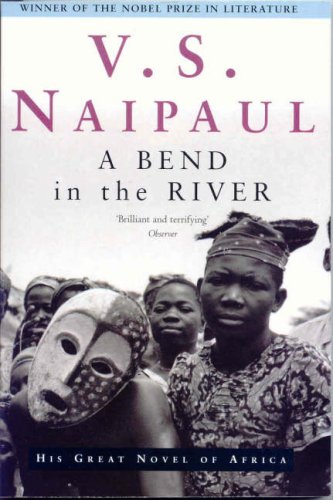 9. A Bend in the River by V. S. Naipaul (1979). A fictionalized account of the violence and political tyranny that gripped Zaire after its independence from Belgium, the novel focuses on an African of Indian descent named Salim who opens a small store at a bend in the Congo River. Ambitious, multicultural, and interested in the West, Salim represents the hopes of the “new Africa.” These hopes are dashed by a corrupt and vicious government in this grim saga of the challenges faced by postcolonial nations.
9. A Bend in the River by V. S. Naipaul (1979). A fictionalized account of the violence and political tyranny that gripped Zaire after its independence from Belgium, the novel focuses on an African of Indian descent named Salim who opens a small store at a bend in the Congo River. Ambitious, multicultural, and interested in the West, Salim represents the hopes of the “new Africa.” These hopes are dashed by a corrupt and vicious government in this grim saga of the challenges faced by postcolonial nations.
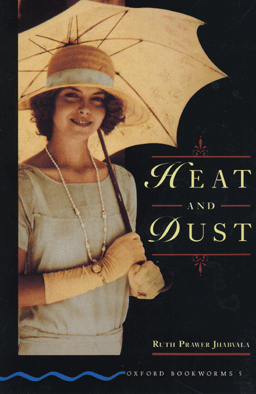 10. Heat and Dust by Ruth Prawer Jhabvala (1975). In 1920s India, the wife of an English officer strangled by propriety falls for a minor prince with a taste for crime. She aborts their child and leaves her husband. Fifty years later, her ex-husband’s granddaughter returns to India to investigate the scandal. Through these two women Jhabvala suggests how the past informs the present, while presenting a vivid picture of India.
10. Heat and Dust by Ruth Prawer Jhabvala (1975). In 1920s India, the wife of an English officer strangled by propriety falls for a minor prince with a taste for crime. She aborts their child and leaves her husband. Fifty years later, her ex-husband’s granddaughter returns to India to investigate the scandal. Through these two women Jhabvala suggests how the past informs the present, while presenting a vivid picture of India.